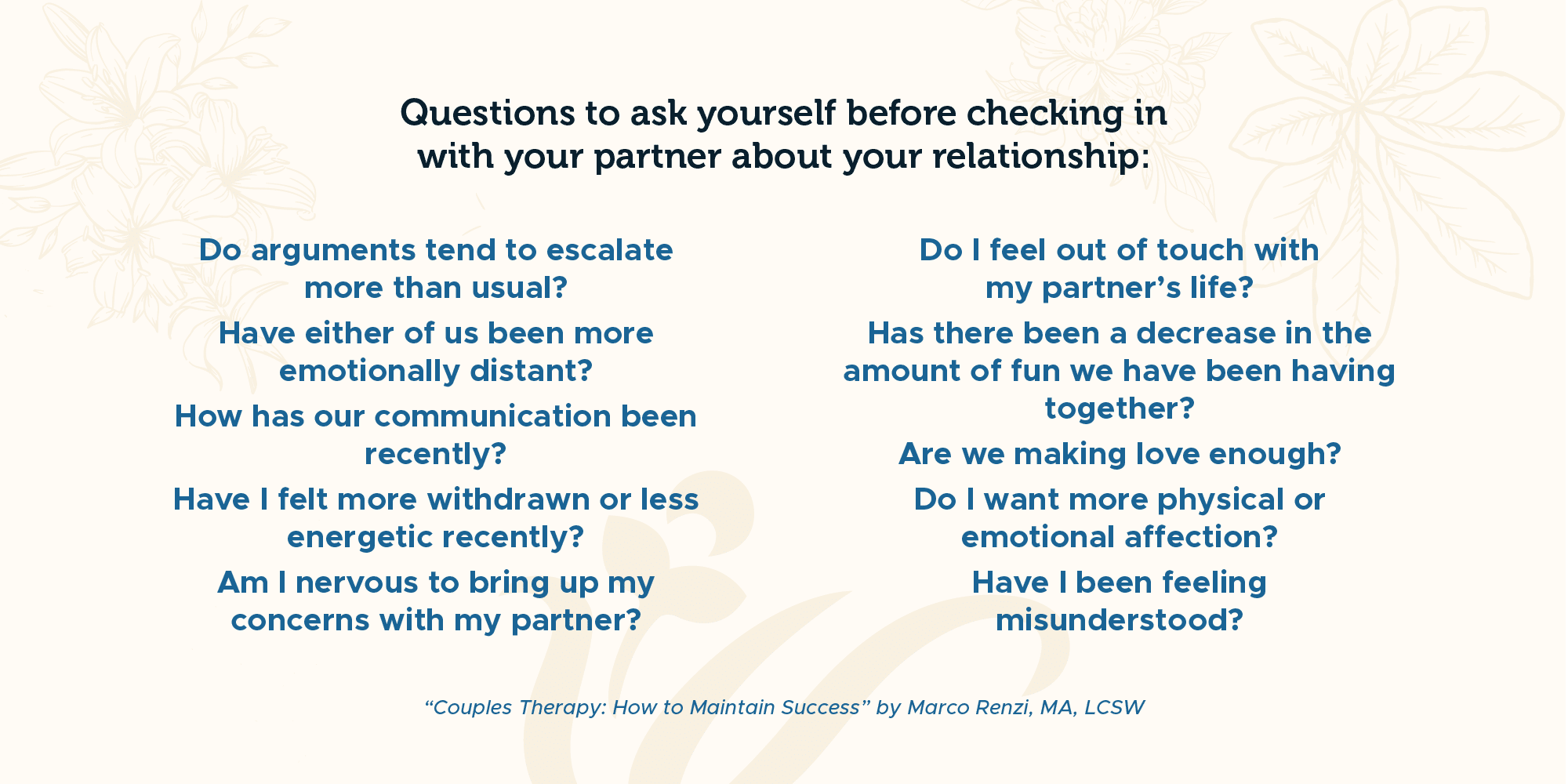
Source: Photo by AllGo on Unsplash
The beginning of couples therapy tends to create a lot of positive change in the relationship. You will learn how to change your cycles of conflict and improve your communication. In some of my previous articles, I have shared some of the skills that you can use to strengthen your relationship even without engaging in couples therapy, such as the stress-reducing conversation, the state of the union conversation, and the family logistics meeting. As you improve your relationship and feel more connected and comfortable with each other, you enter the next phase of your relationship: maintaining your progress.
Once we observe significant progress in our relationship, it is easy to slip into complacency. Positive, healthy, and nourishing relationships require ongoing intentionality and effort. The “maintenance phase” of relationships is just as important as the initial development of communication skills. Even in the most secure relationships, I recommend a minimum of monthly check-ins between partners to make sure that everything is going well and to allow changes to be made if necessary. It is much easier to fix something when it is a small problem rather than waiting for small concerns to develop into resentment and serious frustration.
This conversation should not just be a spur of the moment check-in. Instead, you should both decide on a time in advance. This gives you both the chance to honestly evaluate how you are feeling in the relationship. Before you have your meeting to review the relationship, take a few minutes and reflect on how you are doing and how you are perceiving your partner. Some possible sample questions to ask yourself are:
- Do arguments tend to escalate more than usual?
- Have either of us been more emotionally distant?
- How has our communication been recently?
- Have I felt more withdrawn or less energetic recently?
- Am I nervous to bring up my concerns with my partner?
- Do I feel out of touch with my partner’s life?
- Has there been a decrease in the amount of fun we have been having together?
- Are we making love enough?
- Do I want more physical or emotional affection?
- Have I been feeling misunderstood?

This list is by no means exhaustive, but it can get you thinking about potential topics to bring up with each other. Remember, you both are having this conversation to notice and identify potential worries before they become significant concerns, not to be critical of each other. The earlier you can address these potential issues, typically the easier they are to address.
Once the check-in begins, remember the goal: maintaining your relationship’s growth. This is not a time to criticize each other or get defensive. Instead, focus on understanding your partner and getting a grasp on each other’s needs. To help you reach that goal, talk with each other about what you both identify as possible solutions or needs and not simply about identifying problems.
I cannot overstate the importance of these check-ins. They allow you to stay on top of possible worrying changes in the relationship and give you a chance to talk about the strengths of your relationship and areas of continued growth. This dialogue helps you both understand each other better and reminds each other that successful relationships require ongoing effort and work. When you have a strong relationship, you have a strong foundation to explore the world and a place of safety to return to.

